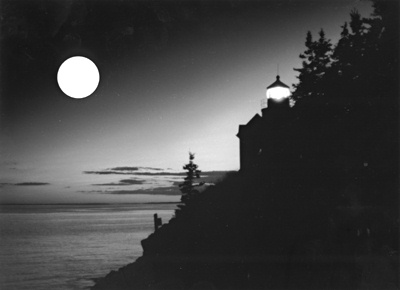All Nonfiction
- Bullying
- Books
- Academic
- Author Interviews
- Celebrity interviews
- College Articles
- College Essays
- Educator of the Year
- Heroes
- Interviews
- Memoir
- Personal Experience
- Sports
- Travel & Culture
All Opinions
- Bullying
- Current Events / Politics
- Discrimination
- Drugs / Alcohol / Smoking
- Entertainment / Celebrities
- Environment
- Love / Relationships
- Movies / Music / TV
- Pop Culture / Trends
- School / College
- Social Issues / Civics
- Spirituality / Religion
- Sports / Hobbies
All Hot Topics
- Bullying
- Community Service
- Environment
- Health
- Letters to the Editor
- Pride & Prejudice
- What Matters
- Back
Summer Guide
- Program Links
- Program Reviews
- Back
College Guide
- College Links
- College Reviews
- College Essays
- College Articles
- Back
Enough Clowning Around
October 31st. Streets full of monsters, ghosts and...oh my! Clowns. On Halloween, you get spooked at haunted houses and when they’re trick or treating. For you, though, there is one costume that is particularly unnerving: the clown. But how did you become afraid of these benign jesters? How did these harmless harlequins create a rare, but prevalent, phobia? This "scary clown" thing is all wrong. Look, you’re not actually scared of clowns—because clowns are not even a little bit scary.
It makes sense: popular culture is so entrenched into our brains. Hollywood has conditioned us to think that clowns are scary. For every Bozo, there’s a Joker. For every Krusty, there’s a Pennywise. There are dozens of movies about evil, murderous clowns. For example, in the movie It, this...creature takes on whatever scares it’s target the most. The murderous clown in the sewer with razorous teeth is waiting for six-year old Georgie. If that clown scares you, you aren’t scared of clowns: you’re scared of Pennywise. This consequent logic is a fallacy. “Pennywise is scary, so I’m scared of clowns.” Let’s take this logic to other iconic villain types. You’re afraid of Norman Bates, so you must be afraid of all motel owners. You’re terrified of Voldemort, so you must be terrified of all lords. You might have been to a motel, where the owner was as pleasant as ever. You might have met a lord, or seen The Lord Protector, where Patrick Cassidy saves the day. You’re just scared of certain Hollywood portrayals.
If you still don’t believe me, think back to the last time you met a clown. Was it at a child’s birthday party? Was it at a circus? These people are just part of another group of people with obsessive hobbies. They’re harmless. Just like soap carving or beetle fighting, some people are obsessed with clowning. They don’t have superpowers or razor sharp teeth like you might have seen in Hollywood. In fact, because of you, these red-nosed buffoons are threateningly close to extinction. The World’s Clown Association released data saying that membership has declined to 2,400 from 3,500 a decade ago (CBS News). Innocent people lose their jobs because of people like you heavily influenced by the image of clowns seen in Hollywood. For what? Frizzy colorful wigs and face makeup are nothing to be scared of. At the end of the day, they’re just regular people hiding behind masks and makeup.
Now, people suffer from coulrophobia, or the obsessive fear of clowns. They feel a sense of uncanniness because something ordinary can look familiar and unfamiliar at the same time. They may smile. They may blink. This is stuff that we see people around us do everyday. However, these zombies, robots, dolls and clowns distort their features for effect. Their clothes, hair and makeup are ‘regular,’ but the second they put on a red nose, or humongous shoes, the human brain fixates on those things and becomes uncomfortable. Noses aren’t supposed to be red, and shoes aren’t supposed to be humongous. It’s not right. Personal experiences as well as popular renditions of clowns couple to display these creatures as something to be scared of.
We can’t let ourselves fear the supposed normal. We’re born with the ability to tell that if someone smiles, they are happy. If someone frowns, they are sad. These are signals that are easy to pick up. Babies can do it. Nevertheless, the clown’s painted smile is so thick, you cannot tell what the emotion is. If it has a smile on, but it doesn’t radiate positivity, your brain freaks out. It panics, causing you to fear clowns. This isn’t anything more than your adrenaline kicking up. The signs that you acquired as a baby are all mixed up, and the brain doesn’t know how to take it. We don’t live in Hollywood. There aren’t clowns scheming to terrorize us, and you don’t realize that clowns are not trying to hurt us.
Next time you see a sewer, don’t be scared to go near it. The worst case scenario: you’re walking down the street alone, and a clown encounters you. One of these “scary clowns” might just turn out to be a YouTube or TikTok prankster, trying to film their next viral video. One of these “scary clowns” could also be someone with an atypical hobby. Your chances are good, so no more clowning around.

Similar Articles
JOIN THE DISCUSSION
This article has 0 comments.
One of my close friends and I started a horror movie trilogy over quarantine, and I would always go to bed freaked out about the villain for the next few nights. I was curious about how the fear died down within a few days. This led me to write this unconvential piece on the psychology of clowns -- are they even scary?